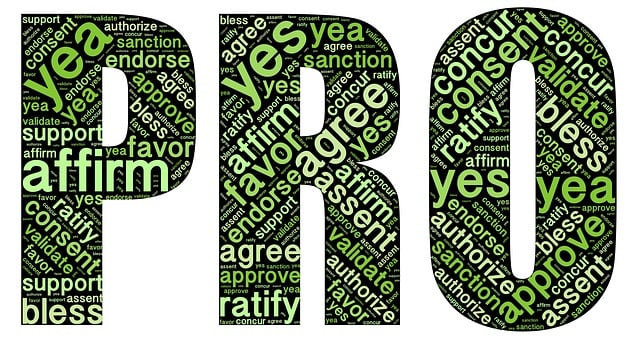In the UK, Translation services for Informed Consent Forms (ICFs) are vital for ensuring patient safety, legal compliance, and effective communication. These services cater to a multicultural healthcare landscape, addressing challenges posed by strict regulations like GDPR and the Human Tissue Act. Professional translators with medical expertise navigate complex terminology and cultural nuances, preventing misinterpretations and misinformed consent. By providing accurate, timely translations, these services streamline clinical trials, enhance patient satisfaction, and build trust between patients and healthcare providers. Case studies demonstrate their critical role in mitigating risks and improving outcomes across diverse linguistic settings.
Are you ready to navigate the complexities of informed consent forms in the UK? This comprehensive guide explores the intricacies of these critical legal documents and the challenges they present for organizations. We delve into the legal and ethical importance of compliance, highlighting why professional translation services are essential for accurate and culturally sensitive translations of informed consent forms. Discover key considerations, successful case studies, and strategies to meet strict deadlines using specialized translation services for informed consent forms in the UK.
- Understanding Informed Consent Forms in the UK
- The Legal and Ethical Importance of Compliance
- Challenges of Traditional Translation Methods
- Why Professional Translation Services are Essential
- Key Considerations for Accurate Translations
- Ensuring Cultural Sensitivity and Precision
- Timely Delivery: Meeting Strict Deadlines
- Case Studies: Successful Consent Form Translations
Understanding Informed Consent Forms in the UK

In the UK, Informed Consent Forms (ICFs) play a critical role in ensuring patients fully understand their medical treatments and give permission for procedures or research involving them. These forms are legally binding documents that require clear, concise language accessible to all patients, regardless of their native language or literacy levels. Failure to provide accurate translations can lead to misunderstandings, legal issues, and potential harm to patients.
Translation services for Informed Consent Forms in the UK are essential to guarantee compliance with regulations like the General Data Protection Regulation (GDPR) and the Human Tissue Act. Professional translation ensures that medical terminology is accurately conveyed in the patient’s native language, preserving the integrity of the information and the ICF process. This service is particularly vital in multicultural healthcare settings where a diverse range of languages may be required.
The Legal and Ethical Importance of Compliance

In the realm of healthcare and research, the legal and ethical importance of compliance cannot be overstated, especially when it comes to Informed Consent Forms (ICFs). These documents play a pivotal role in ensuring patients understand their rights, risks, and alternatives before agreeing to any medical procedure or clinical trial. In the UK, where translation services for ICFs are increasingly in demand due to the diverse patient population, accuracy in translation is not just desirable but legally mandated.
Translation errors can lead to severe consequences, including breach of data protection laws, misinformed consent, and even legal repercussions. Reputable translation services specializing in ICFs must therefore adhere to strict ethical guidelines and industry standards, such as those set by the Medical Translation Association (MTA). This includes meticulous attention to detail, cultural sensitivity, and a deep understanding of medical terminology to guarantee that translated ICFs remain legally compliant and ethically sound, fostering trust between patients and healthcare providers.
Challenges of Traditional Translation Methods

In the realm of healthcare and research, informed consent forms play a pivotal role in ensuring participant protection and ethical practices. However, navigating international studies presents a unique challenge – the need for precise and compliant translations of these critical documents. Traditional translation methods often fall short due to their limited ability to capture subtle nuances, legal terminology, and cultural context. This can lead to misinterpretations, invalid consents, and potential legal ramifications.
For instance, direct word-for-word translations may not adequately convey the intended meaning or might overlook essential elements specific to a particular jurisdiction. In the UK, with its stringent data protection regulations like GDPR, ensuring that consent forms are not just translated but also legally compliant is paramount. Translation services specializing in informed consent forms must go beyond basic language conversion and offer expertise in both legal and cultural aspects to deliver accurate and reliable documents.
Why Professional Translation Services are Essential

In today’s globalized medical landscape, ensuring accurate and culturally sensitive communication is paramount, especially when dealing with patient consent forms. Translation services for Informed Consent Forms UK are not just beneficial but essential to maintaining high standards of patient care and legal compliance. Professional translation goes beyond simple word-for-word interpretation; it involves a deep understanding of medical terminology, cultural nuances, and legal requirements specific to the UK.
Engaging professional translators ensures that complex medical information is conveyed in a clear and accessible manner for patients from diverse linguistic backgrounds. These experts adapt the content to suit the target audience’s cultural context while adhering to strict confidentiality and data protection guidelines. Such services are vital to minimizing errors, preventing miscommunication, and ensuring patients fully comprehend their rights and responsibilities, thereby fostering trust and enhancing patient satisfaction.
Key Considerations for Accurate Translations

When it comes to translation services for Informed Consent Forms (ICFs) in the UK, accuracy is paramount. Key considerations ensure that the translated documents maintain their integrity and purpose. Firstly, only use professional translators with expertise in medical or legal terminology, as these fields require precise language to convey complex concepts clearly.
Secondly, cultural appropriateness is vital. Translators should be sensitive to cultural nuances, ensuring that the ICFs are accessible and understandable for diverse patient populations. This involves not just translating words but adapting content to align with local customs, ethical standards, and legal requirements, thereby facilitating effective communication and ensuring compliance throughout the process.
Ensuring Cultural Sensitivity and Precision

When it comes to translation services for Informed Consent Forms (ICFs) in the UK, cultural sensitivity and precision are paramount. ICFs often contain complex medical and legal terminology that requires not just linguistic expertise but also a deep understanding of local customs, ethics, and regulations. Professional translators must be adept at navigating these intricacies to ensure accurate and culturally appropriate translations.
Precision is critical to maintain the integrity of the form’s content, as even subtle mistranslations can lead to misunderstandings or legal complications. Translation services specializing in ICFs should employ native speakers with medical or legal backgrounds to guarantee that every phrase conveys the intended meaning accurately. This attention to detail not only protects patients’ rights but also facilitates seamless communication across diverse linguistic and cultural barriers.
Timely Delivery: Meeting Strict Deadlines

In the healthcare and pharmaceutical sectors, timely delivery of compliant documents is paramount. When it comes to Informed Consent Forms (ICFs), precision and speed are critical. Delays in obtaining translations for ICFs can lead to significant setbacks in clinical trials or patient treatment plans. This is where professional translation services step in as a game-changer. With experienced linguists and advanced technologies, these services ensure accurate and swift translations that meet the stringent requirements of regulatory bodies in the UK.
Many translation companies offer urgent turnarounds without compromising quality, catering to the demanding nature of clinical research and patient care. This is crucial when dealing with life-saving treatments or rare conditions where time is of the essence. Efficient translation services for ICFs allow researchers and healthcare providers to navigate complex regulatory landscapes seamlessly, ensuring that patient consent processes are not hindered by language barriers.
Case Studies: Successful Consent Form Translations

Successful case studies in consent form translations demonstrate the critical role professional language services play in ensuring patient safety and legal compliance across multilingual healthcare settings in the UK. By engaging reputable translation services, healthcare providers can mitigate risks associated with inaccurate or incomplete translations. These risks include miscommunication of medical procedures, potential legal liabilities, and ethical concerns surrounding patient autonomy.
One notable example involves a leading hospital that partnered with a specialized translation service to translate consent forms into several languages to accommodate its diverse patient population. The translated documents were not only linguistically accurate but also culturally adapted, ensuring patients from different backgrounds fully understood the implications of their medical decisions. This initiative resulted in improved patient satisfaction and adherence to treatment protocols, underscoring the value of high-quality translation services for informed consent forms in the UK healthcare sector.
In today’s globalized healthcare landscape, ensuring accurate and compliant Informed Consent Forms (ICF) translations is paramount. This article has explored the legal and ethical importance of compliance in ICF translation, highlighting the challenges of traditional methods. It has underscored why professional translation services are essential for maintaining precision and cultural sensitivity, especially when navigating complex regulatory environments like the UK. By considering key factors such as timely delivery and leveraging successful case studies, healthcare providers can confidently leverage translation services to facilitate seamless patient consent processes. For those seeking reliable solutions, professional translation services specializing in ICFs offer a game-changing approach, ensuring compliance and enhancing patient care.



